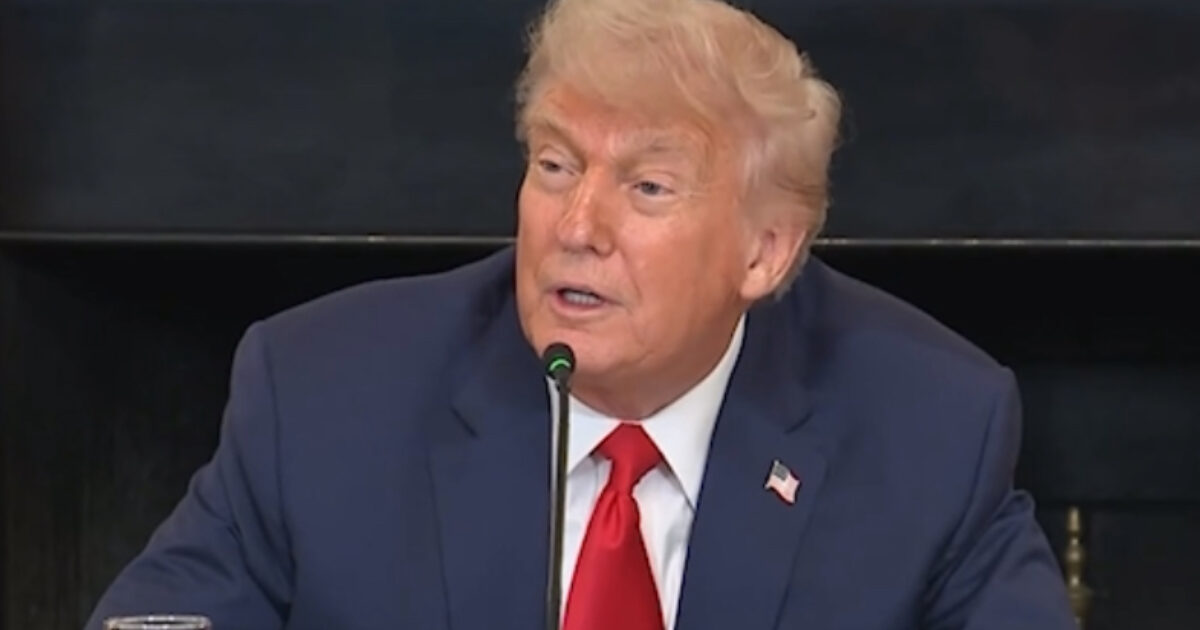In a recent development that has significant implications for U.S. immigration policy, Harvard Law Professor Emeritus Alan Dershowitz has outlined a legal pathway for former President Donald Trump to resume mass deportations.
This comes after the Supreme Court’s decision to block the administration’s use of the Alien Enemies Act for deporting illegal migrants in Texas. Dershowitz emphasizes that while the executive branch holds substantial authority over immigration enforcement, adherence to due process is paramount.
The Supreme Court’s ruling highlighted the necessity of due process in deportation proceedings. Dershowitz interprets this as a directive that the administration can proceed with deportations, provided they are conducted lawfully and with appropriate legal safeguards. He notes that “due process doesn’t have a singular meaning,” suggesting that the requirements may vary depending on the individual’s status and circumstances.
Our Memorial Day Sale is STILL ON! Get 25% Off Sitewide with Discount Code: MEMORIAL25.
Includes FREE Shipping in the USA. https://GetZStack.Com
The administration’s attempt to utilize the Alien Enemies Act, a law dating back to 1798, was met with legal challenges. Critics argue that its application in peacetime is unprecedented and raises constitutional concerns. The Supreme Court’s decision to block its use underscores the importance of ensuring that deportation efforts align with current legal standards and respect individual rights.
Dershowitz points out that the executive branch retains the substantive power to determine who may remain in the country. However, this authority must be exercised in a manner consistent with constitutional protections. He underscores the importance of providing individuals with the opportunity to challenge deportation orders, ensuring that decisions are not made arbitrarily.
The case of Kilmar Abrego Garcia, a Maryland resident mistakenly deported to El Salvador, illustrates the potential pitfalls of expedited deportation processes. The Supreme Court intervened to pause the administration’s actions, highlighting the necessity of thorough legal procedures and the potential consequences of administrative errors.
In light of these developments, Dershowitz advises that the administration can still pursue its immigration objectives by adhering to established legal frameworks. This includes providing adequate notice to individuals facing deportation and ensuring they have the opportunity to contest the decisions. By doing so, the administration can align its actions with constitutional requirements and avoid further legal setbacks.
The broader implications of this legal guidance are significant. It suggests that while aggressive immigration enforcement is possible, it must be balanced with respect for individual rights and legal due process. This approach may serve to strengthen the legitimacy of enforcement actions and reduce the likelihood of successful legal challenges.
From a Christian conservative perspective, the emphasis on lawful and orderly processes resonates with the principles of justice and compassion. Ensuring that immigration enforcement respects the dignity and rights of individuals aligns with the moral imperative to treat all people with fairness and respect.
Furthermore, this approach may help to restore public confidence in the immigration system. By demonstrating a commitment to the rule of law and due process, the administration can address concerns about arbitrary or unjust enforcement actions. This could foster greater public support for immigration policies that are both firm and fair.
In conclusion, Dershowitz’s legal insights provide a roadmap for the administration to pursue its immigration objectives within the bounds of constitutional law. By emphasizing due process and legal compliance, the administration can reinforce the integrity of its enforcement actions and uphold the values of justice and fairness that are central to our nation’s identity.






